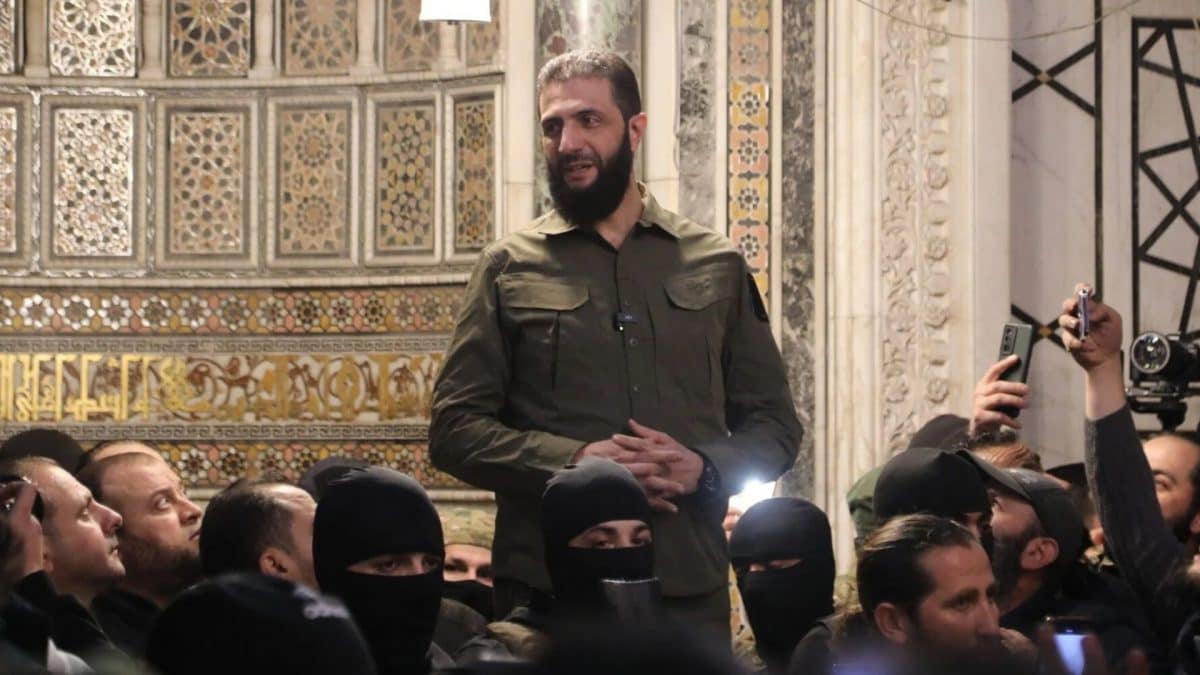Israel has been Syria’s archnemesis since history can remember. The two countries have shared a hostile relationship for a long time and have almost been in a constant state of war. They lack diplomatic, economic or cultural ties owing to their conflict with Syria joining the Arab League’s call to boycott Israel.
However, recent developments in Syria saw a rebel movement which overthrew former president Bashar al-Assad’s administration and a takeover by the Hayat Tahrir al-Sham (HTS) group and its allies in a matter of weeks. Since then, Israel has also intensified its attack against Syria which continues to remain in a volatile situation.
But HTS’s chief Ahmad al-Sharaa does not want to worsen the crisis in Syria and has declared that it will not engage in conflict with Israel. This came as a shock to many as the country that once was battle-ready when it came to Israel is now perhaps going soft on it.
Israel breaches Golan Heights ceasefire
Last week, Israeli Prime Minister Benjamin Netanyahu declared that its military has temporarily taken control of the demilitarised buffer zone in the Golan Heights, stating that the 1974 disengagement agreement with Syria has “collapsed” following the rebel takeover of the country.
“We will not allow any hostile force to establish itself on our border,” he said as he ordered the Israeli Defense Forces to enter the buffer zone and “command positions nearby”.
During the Six-Day War in 1967, Israel seized the Golan Heights from Syria and formally annexed the territory in 1981, a decision that remains unrecognised internationally. In 1974, a ceasefire agreement created a United Nations-monitored buffer zone between the two countries.
Israel to swell population in Golan
On Sunday, Israel agreed to double its population on the occupied Golan Heights while saying threats from Syria remained despite the moderate tone of rebel leaders who ousted President Bashar al-Assad a week ago.
“Strengthening the Golan is strengthening the State of Israel, and it is especially important at this time. We will continue to hold onto it, cause it to blossom, and settle in it,” Prime Minister Benjamin Netanyahu said in a statement.
“We have no interest in a conflict with Syria,” Netanyahu said in a statement. Israeli actions in Syria were intended to “thwart the potential threats from Syria and to prevent the takeover of terrorist elements near our border,” he added.
Some 31,000 Israelis have settled in Golan Heights, said analyst Avraham Levine of the Alma Research and Education Center specialising in Israel’s security challenges on its northern border. Many work in farming, including vineyards, and tourism. The Golan is home to 24,000 Druze, an Arab minority who practice an offshoot of Islam, Levine said. Most identify as Syrian.
Israel has reportedly assured Druze Arabs that their security, which is threatened by HTS and other rebel groups, is now the responsibility of the IDF.
Shara says Syria ‘doesn’t seek conflict’
According to the Tehran Times, Israel has carried out about 800 airstrikes in Syria since HTS took over Damascus. Since December 8, the country has struck several military sites in Syria and has sent ground troops into the country.
Despite all this, HTS’ Sharaa has ruled out direct confrontation with Israel. “The Israelis have clearly crossed the disengagement line in Syria, which threatens a new unjustified escalation in the region,” he said, adding, “The general exhaustion in Syria after years of war and conflict does not allow us to enter new conflicts.”
Nevertheless, Israel has continued its attack against Syria by launching dozens of overnight strikes even after the HTS chief said it does not want to fight.
Is Israel supporting Syria breaking into factions?
Wahabi Anan Wahabi, a Research Fellow at the International Institute for Counter-Terrorism (ICT) at Reichman University, told the Times of Israel, “The modern nation state in the Middle East has failed. All the different communities in Syria could not live together in one national state.”
“The best option is for Syria to follow the model of the Kurdistan region in Iraq,” he said as he envisioned Syria’s future which must uphold a balance that respects the country’s ethnic and religious diversity, encompassing Sunni and Shiite Arabs, Kurds, Christians, Druze, and Alawites, the religious minority to which Assad belongs.
Wahabi claims that plans for economic development projects in southern Syria, supported by Israel, have been informally discussed in meetings between Israeli academics and Syrian opposition figures seeking peace. However, there are no verifiable reports confirming these meetings.
With inputs from agencies
